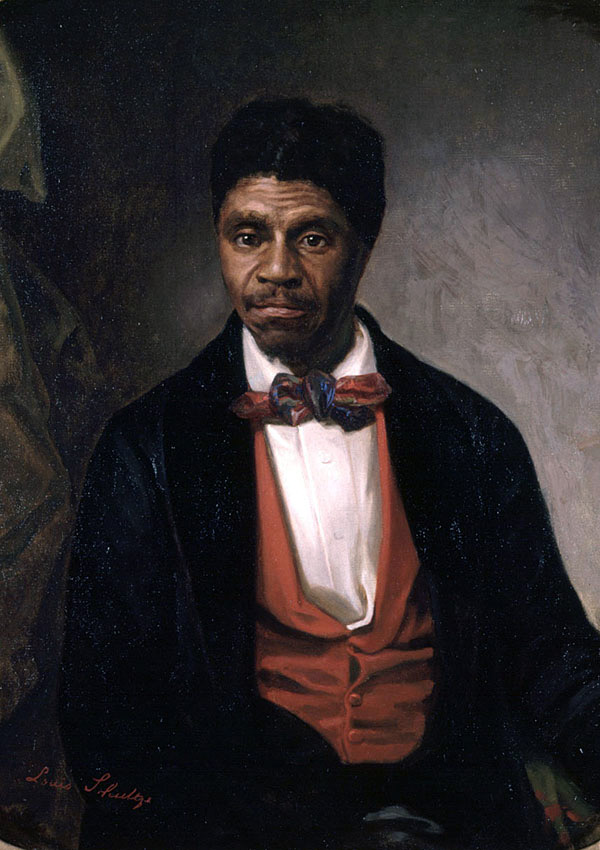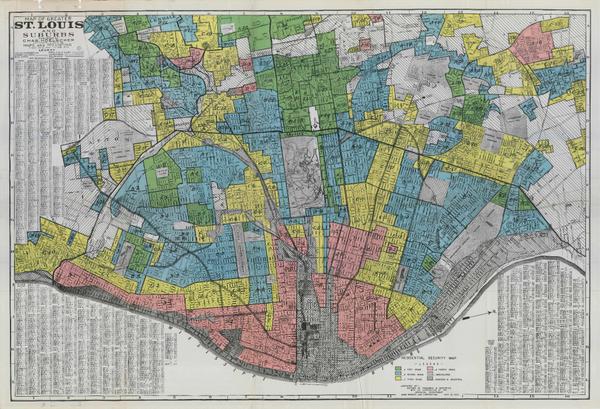When God's people built themselves a golden calf, the next generation bore the consequences as well. Surely the younger group said among themselves "it's not our fault that our parents were so sinful. We know better now." And yet, they continued to wander the desert.
So when we read current events, it can be helpful to remind ourselves of the history and context out of which they've emerged. Missouri has been the center of so much of the news in this latest chapter of our racial history. The killing of Michael Brown. The militarized show of police that followed. Since then, the deaths of VonDerrit Myers and Antonio Martin. And now, the racism on the University of Missouri's campus that has highlighted the painful realities of being #BlackOnCampus across the country. So what's the historical context that has led us to wander in this desert?
Missouri's history is famous for the 1820 'Missouri Compromise' that allowed it to join the United States as a slave state, thus perpetuating the institution in the U.S. and indeed allow it to expand further to the southwest. While the statute did prohibit slavery in northern territories, the Kansas–Nebraska Act essentially nullified that effect in 1854. It was mostly from Missouri that pro-slavery settlers flooded into neighboring Kansas to influence its becoming a slave state (a scandal referred to a "Bleeding Kansas," due to the subsequent violence that would foreshadow the impending national civil war).
 |
| Dred Scott |
In 1857, the U.S. Supreme Court ruled in Dred Scott v. Sandford that the federal government could not regulate slavery in the federal territories, officially rendering the Missouri Compromise unconstitutional. It was a case that had originated in the Missouri courts after Dred Scott filed suit for his freedom, having traveled there with his master as well as to other free states. The Supreme Court ruled that regardless of slave status, a Black person was not a citizen and therefore could not sue for freedom, or for any other purpose. This ruling had huge ramifications for all people of color in the U.S. for decades to come.
During the U.S. Civil War, Missouri was claimed as part of both the Union and the Confederacy, with two competing state governments and was represented in both the U.S. Congress and the Confederate Congress. This situation inevitably led to more conflict and bloodshed, not the least of which at the expense of Black people living in the state.
The NAACP has records of 81 lynching in the state of Missouri in the 27 years between 1889 and 1916. In 1901, after a white woman was found dead Pierce City, a mob armed with guns and torches cleared out an entire black neighborhood of its residents, all of whom left their property behind and never came back.
Over the span of ten years, terror tactics such of these had driven out over 30% of the area's Black residents. Today, Joplin is 90% white, the surrounding county is 92% white. The motto of the city of Joplin is "Proud of Our Past, Shaping Our Future." I have no doubt.
Like other states, Missouri was significantly affected by redlining, the War on Drugs, and other 21st policies that created a direct lineage to the strange fruit it bears today (more about Missouri's racial history can be found here and here ). This history brings context to the dehumanization of Black people that leads to their murder in our communities, to their treatment as second-class citizens in the courtroom, to the scare tactics they face on campuses, to the shows of force that make Black residents fear for their lives and property.
But the point is not to single-out Missouri itself. Indeed, every state has its own racial history that has significant consequences today. Take some time to look into the racial history of your own state, your own city, even your own block.
 |
| Redlining map of St. Louis. Ferguson is clearly visible in the top right. |
Look at the property records for your home and for your church. Is there a Racial Restrictive Covenant in the history of the property where you live? Was your church's land bought using proceeds from the sale of slaves or their property?
This history is important. It puts our current events into a context that informs our interpretation of what we are seeing all around us. Just like our biblical forebearers, we inherit the consequences of generations past. The question is whether we will take definitive steps to break the cycle today.

No comments:
Post a Comment